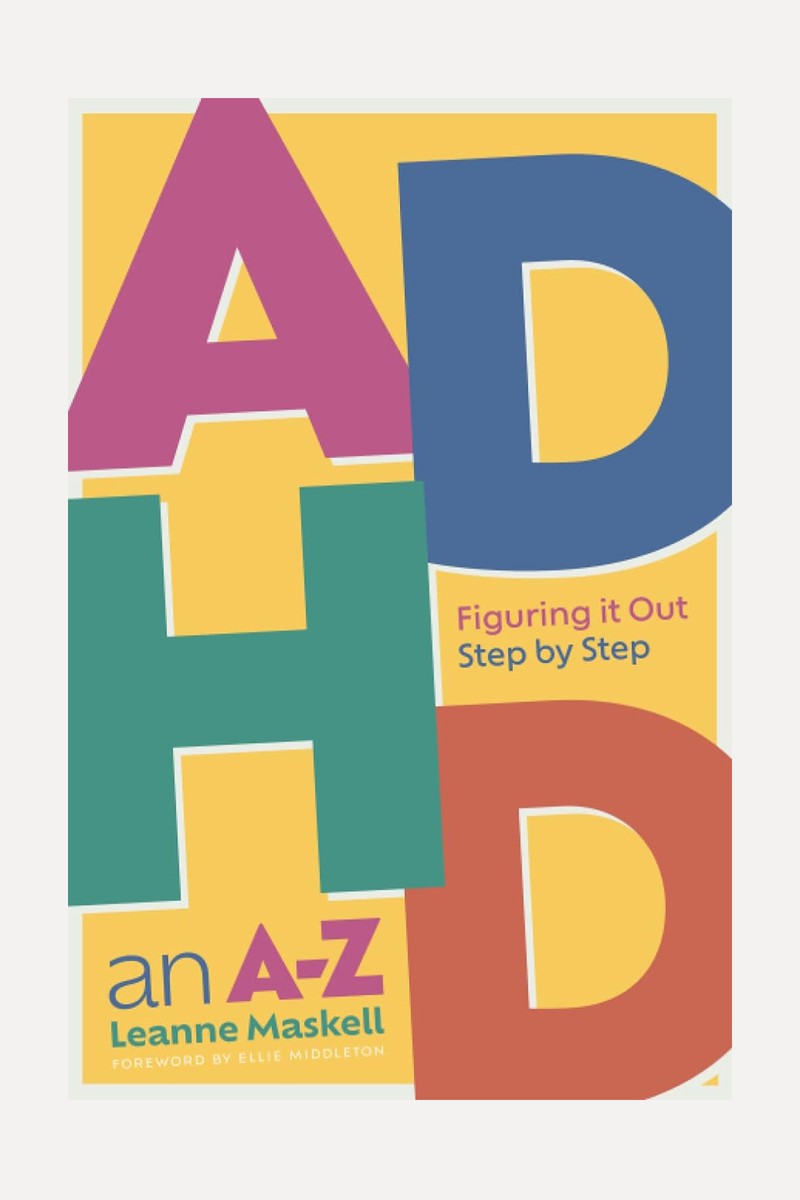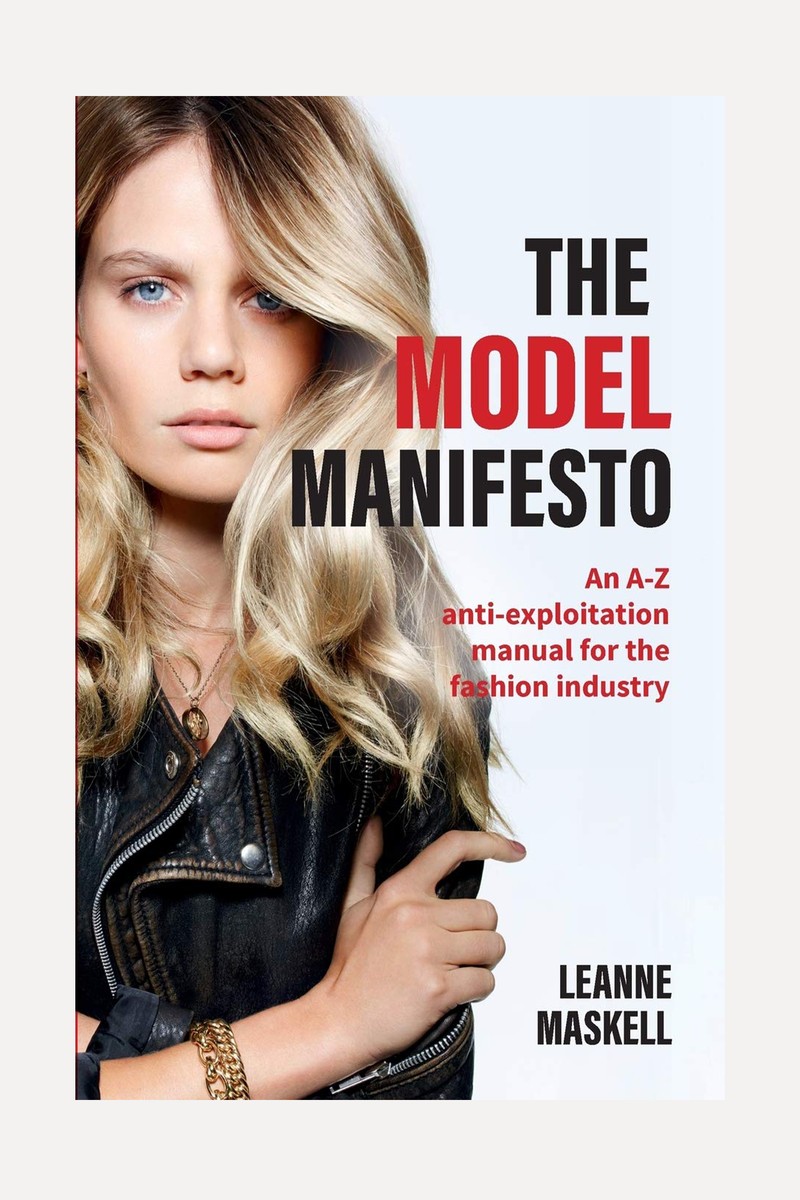Meet The Woman Trying To Change Perceptions Of ADHD
My mum signed me up to a modelling agency after we moved to Cyprus when I was 13. I did not want to do modelling – I was bullied for being ugly, especially in England. But my first job was with Vogue, so my mum persuaded me to do it. But something felt off from the start. On set I was being changed by two men, wearing basically nothing more than a thong. I didn't particularly enjoy those experiences of being dressed up by strangers. But when we came back to England, that’s when I was properly scouted in Westfield.
The minute I went into the modelling agency, I was told to lose three inches off my hips. I was so angry that I rejected their offer but the woman who’d scouted me called me up and said she was going to get fired if I didn't do it. So, I did. And so began, at the age of 18, a routine of getting measured every week, going on test shoots which weren’t paid, get my hair dyed and buying clothes. The money was non-existent, so it was basically slavery, grooming and trafficking. After a year of unpaid test shoots and not eating anything, they said I was thin enough to start booking paid jobs.
Despite leaving my agency, another one quickly scouted me, and I fell into the same pattern. Looking back, I see how the ADHD really fed into it, because modelling is like playing the lottery every day. I wouldn't know what I was doing the next day until the night before. I could be flying to the Maldives and doing a shoot or I could be doing nothing. It’s a really terrible job to do if you're struggling with ADHD because every day is completely different and it’s like an addiction – every time you try to quit, they loop you back in.
Even after I published the book, The Model Manifesto, my old agency still would message me. They’d tell me some brand wanted me for £10,000, which sounds amazing, but the reality would never materialise. Nine times out of ten, you’d never actually get the job. As I got a bit older, I could see like the experiences I was having weren't normal. Plus, once I started studying law, I saw how warped our contracts were and how big a cut the agency was taking. It’s actually really easy for models to get into debt with their agencies once they put your hair appointments, clothes, nails etc. ‘through your account’. Some agencies will even charge you for putting your picture on their website.
With modelling, you’re constantly invited out by club promoters for free. If I didn't have anything to do the next day, I would usually go out and get really drunk because I figured I could turn my brain off. I basically developed really terrible coping strategies, which saw my life spiral out of control. I broke up impulsively with my boyfriend of four years, I moved out and went to Australia thinking everything will be fine. But when I got there, I became really suicidal. I would wake up in the morning and have no idea what I would do by the end of the day. This wasn't helped by modelling, because it was so full of highs and lows.
I started Googling what was wrong with me, thinking I must be bipolar or at least have borderline personality disorder and depression. Then, I just happened to go to a mental health circle on the beach in Australia where people were talking about their experiences. I’d never talked about mental health before, even though it felt like I was going completely crazy. I remember going to see a doctor and saying, I'm not okay. I keep destroying my life and can't stop it. But the doctor said, “You’re a model and you have a law degree. You've got the whole world at your feet.” So, I said, “Then why do I want to kill myself constantly?” I couldn't really get the help that I needed then. Weirdly, though, having had those thoughts, I started to loosen up. I thought I don't care if I eat croissants and get fat because I'm going to be dead next week. It kind of made me live in the present. From there I realised I could stop modelling, come back to England and see a proper psychiatrist.
After paying a psychiatrist £400 I found out I had ADHD. But I thought, that's not a real problem. I asked for medication, but he told me no, there was a proper process that would involve coming back. I didn’t. Instead, I returned to Byron Bay in Australia and wrote The Model Manifesto. I didn't want anyone else ending up in this position, and from a distance, I could see how these things that happened to me weren't my fault. That’s when I decided to go and see the psychiatrist again. I finally understood what ADHD was and how it was affecting me, and then my life changed completely.
I realised there were a lot of misconceptions around ADHD – like that it can be fixed with a pill or that adults don’t really have it. ADHD couldn't be diagnosed in adults until 2008, which is why there are now so many adults being diagnosed. I learned a lot about emotional regulation and executive functioning skills, too, as well as emotional pain associated with real or perceived rejection. As a model, I was rejected every single day, so I was very desensitised to that. Someone could call me fat and I'd be like, “I'm sorry, I know.” I realised I’d been trapped in a cycle of gaslighting myself, without ever knowing that could relate to ADHD. But one in four women with ADHD have attempted suicide, and it makes sense when you understand how prone to impulsivity you are.
In my coaching business, I now use the phrase ‘pills don't give skills’. When I first went on medication for ADHD it almost killed me. It made me much worse and it was a horrible experience because everyone in my life was worried. There are also a lot of people and companies who profit from ADHD drugs and treatment, so between my medication bills and psychiatrist fees, it was like I was being taxed for being neurodivergent. So, I only took it on the days I thought I really needed it. My skin went grey. I got acne. I was having panic attacks. I couldn't sleep. I actually reached the weight the model agencies had always wanted me to. But my family would burst into tears when they saw me, my bones would literally hurt me when I lay down, and I've never hated my body more.
What ADHD medication can help you with is seeing the mess. I could literally see mess in my house that I hadn't before. But I didn't know how to deal with it, and I had no skills, so I just felt really overwhelmed and would leave the house to avoid it. It’s just proof that without explanation of your symptoms or any self-awareness, medication isn’t going to be the magic pill you think it is. You need to understand how your brain works so you can understand why you think differently to most people.
There was nothing to fix – it was just a question of understanding who I was and accepting this part of myself. This enabled me to get a job in mental health and disability law, where I learned that ADHD could be a disability and learned about the government's Access to Work scheme. This offers funding for support of up to £66,000 to help people who have health conditions impacting them at work – to this day, less than 1% of eligible people use it. I also found an ADHD coach who was the first person I'd met with ADHD as well - it was life-changing to meet someone who understood the way my brain worked.
That’s when I started writing ADHD an A-Z: Figuring it Out Step by Step. I wrote about 75% of it in a month and then about six months later it was finished. I published it myself on Amazon in January 2020 and then Microsoft contacted me about two months after that. They told me someone at the company had read my book and wanted me to come in and talk to the employees. I eventually had to do it online in June 2020, but it really resonated because everyone was suddenly working from home and so many adults saw their kids not being able to concentrate properly. Then, mental health started becoming a broader conversation because so many people's circumstances had changed.
I started receiving a lot more messages about the book, so that was when I thought I should leave my job and start my own ADHD coaching business. I knew there were so many people out there that needed the same help I had found. Having ADHD myself, I like being able to see the impact of things, so it felt like it made sense as a career step. Lots of people think anyone with ADHD must have issues with concentration but we’re actually completionists – we love seeing things get done.
I've coached so many people who are so successful – from university students who are publishing books alongside their studies to young adults who didn't go to university who are training huge, multi-national companies all over the world. It just goes to show that young neurodiverse people are growing up in a very different world and the same barriers just don’t exist. They understand that academic success does not dictate success in the real world and that they have a lot more agency than society tells them they do. Part of that is down to social media – thanks to platforms like TikTok, people’s eyes have been opened.
My new book, ADHD Works at Work will help people understand ADHD better. The key is, once you understand this, you can build in the structures to help you – like repeat online food deliveries – to help you run your life. You need to understand what the issues are for you, what support is available and then put that support in place.
I trained as an ADHD coach with a company called ADCA in America. Once I was qualified, I started setting up courses to help people because a lot of them couldn't afford long-term coaching. These online courses were only five-minute lessons, but they were designed to get people talking about what ADHD actually means to them. We now have our own ADHD coaching training course and certification. It’s a different approach to normal career coaching because it isn’t goal orientated. People come to us for guidance and understanding, rather than in pursuit of one thing.
We encourage our clients to talk to their employer, help them with the Access to Work process, and then we give them exercises, too. It’s really important to set clear boundaries between therapy and coaching to make sure people are getting the support they need. This year, I’ve trained 80 ADHD coaches myself all over the world. I’ve also trained companies like Disney and Yahoo, who want to talk more about the impact of things like ADHD at work. If I have one goal, it’s to see a world where neurodivergent people have like the same opportunities as anyone else.
Leanne Maskell is an ADHD coach, the founder of ADHD Works, and author of new book ADHD Works at Work. For more information visit LeanneMaskell.com
SHOP LEANNE'S BOOKS


Leanne Maskell,
DISCLAIMER: We endeavour to always credit the correct original source of every image we use. If you think a credit may be incorrect, please contact us at info@sheerluxe.com.


